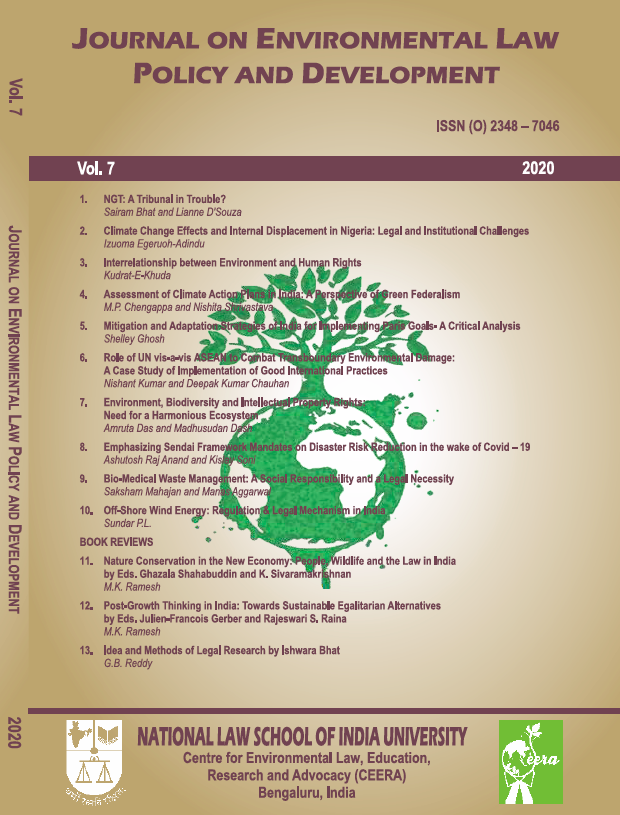Challenges to environment protection are rampant and a daunting task. With strengthened global consensus in the protection of environment by the international community, there is a greater requirement for a strength-oriented approach at the grass roots. Urbanisation is one of the biggest drivers of land use change which largely occurs with little or no assessment of the environmental impact of future or present land use change. Effects of urbanisation are compounded by climate change which also interplays with existing environmental concerns such as air and water pollution, accumulation of untreated waste, encroachment of green belts, water scarcity, leading to higher incidences of heat waves, droughts, cloud burst, riverine floods, rise in temperatures, higher incidence of diseases etc. Land degradation caused on account of improper waste segregation, management and disposal is one of the major problems faced by most developing countries. Despite having in place several legislative and policy measures, the leverage of existing law in regulation of waste-management, municipal, industrial, plastic, construction and bio-medical, is miniscule and requires constant scrutiny.
Centre for Environmental Law, Education, Research and Advocacy [CEERA], National Law School of India University, Bengaluru has been pivotal in organising various Seminars and Certificate Courses on Environment and allied areas, including Energy Security, Climate Change, Chemical and Hazardous Waste Management, etc. towards enabling a greater dissemination of research and training on national and international legal policies. The Centre has been the steady choice of various ministerial and government departments including Union Public Service Commission, Hindustan Aeronautics Limited and the Central Pollution Control Board for the past two decades towards organising training programs for their personnel and other regulatory bodies.
Currently, we are undertaking a Three-year Ministry of Environment, Forest & Climate Change -Global Environment Facility project on ‘Collaborative Engagement for Research, Training and Development in Handling of Chemical and Hazardous Waste under various Multilateral Environmental Agreements (MEA)’, wherein we are required to undertake extensive research and training at the grass-root level on the impact of the MEAs and advise the Ministry on various aspects covered therein. In November 2019, under the aegis of this project, we published the Handbook on Chemical and Hazardous Waste Management and Handling in India.
In pursuit of our objectives, this 7th Volume of the Journal of Environmental Law, Policy and Development, endeavours to provide for the dissemination of legal awareness in one of our core competencies, viz. Environmental Law.
Journal-on-Environmental-Law-Policy-Development-Vol-7-2020 TOC
To access the full e-version of the JELPD click here.


[…] rybelsus prices […]
[…] clomid prices […]
[…] cialis super active […]
[…] canadian pharmacy cialis […]
[…] 50 mg generic viagra […]
[…] sildenafil 100mg tablets […]
[…] ginseng for boosting sperm count […]
[…] sildenafil 50 mg online […]
[…] cialis daily […]
[…] generic viagra 100mg […]
[…] eli lilly cialis […]
[…] viagra 25mg price in india […]
[…] cialis prescription online […]
[…] online cialis pharmacy […]